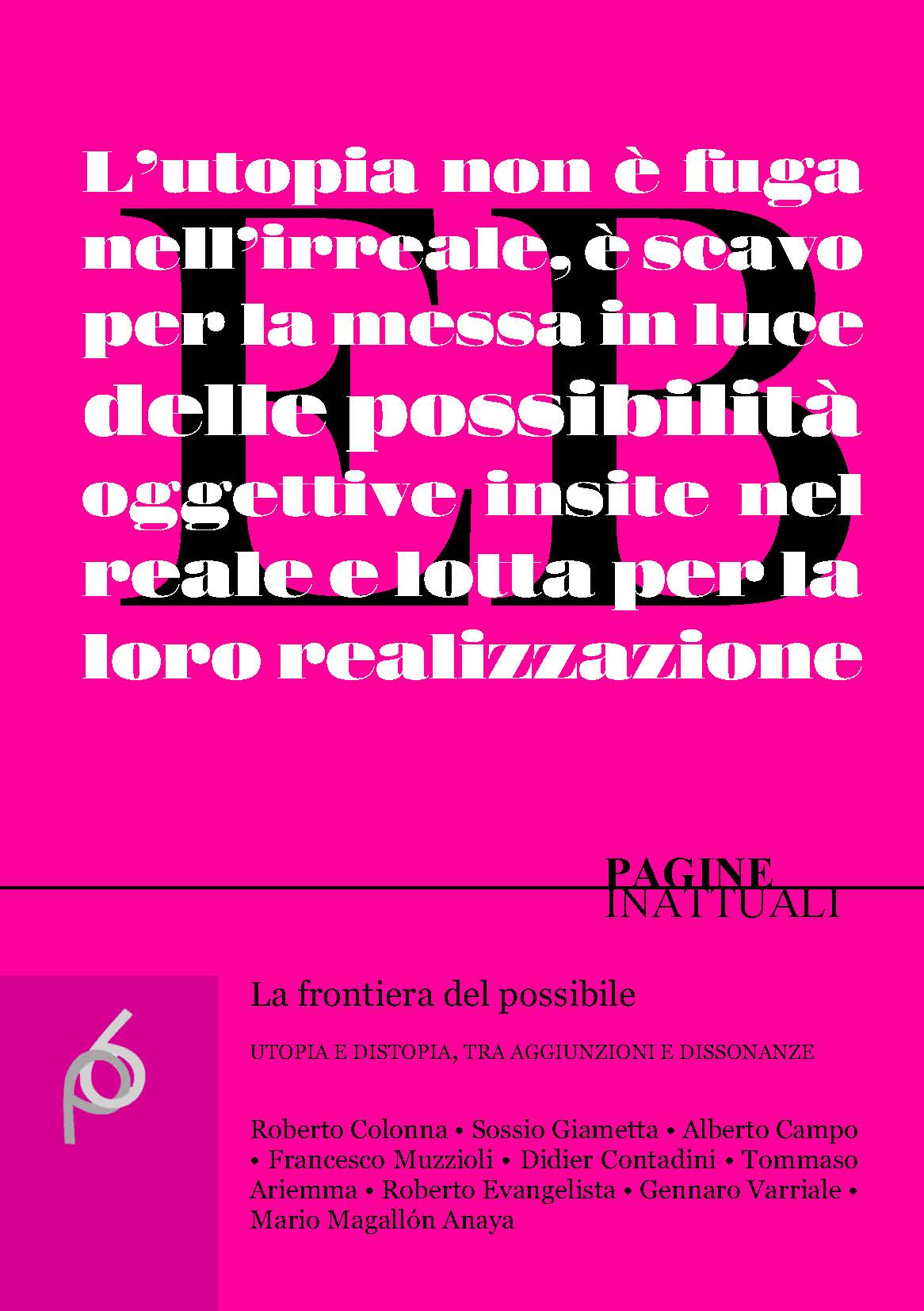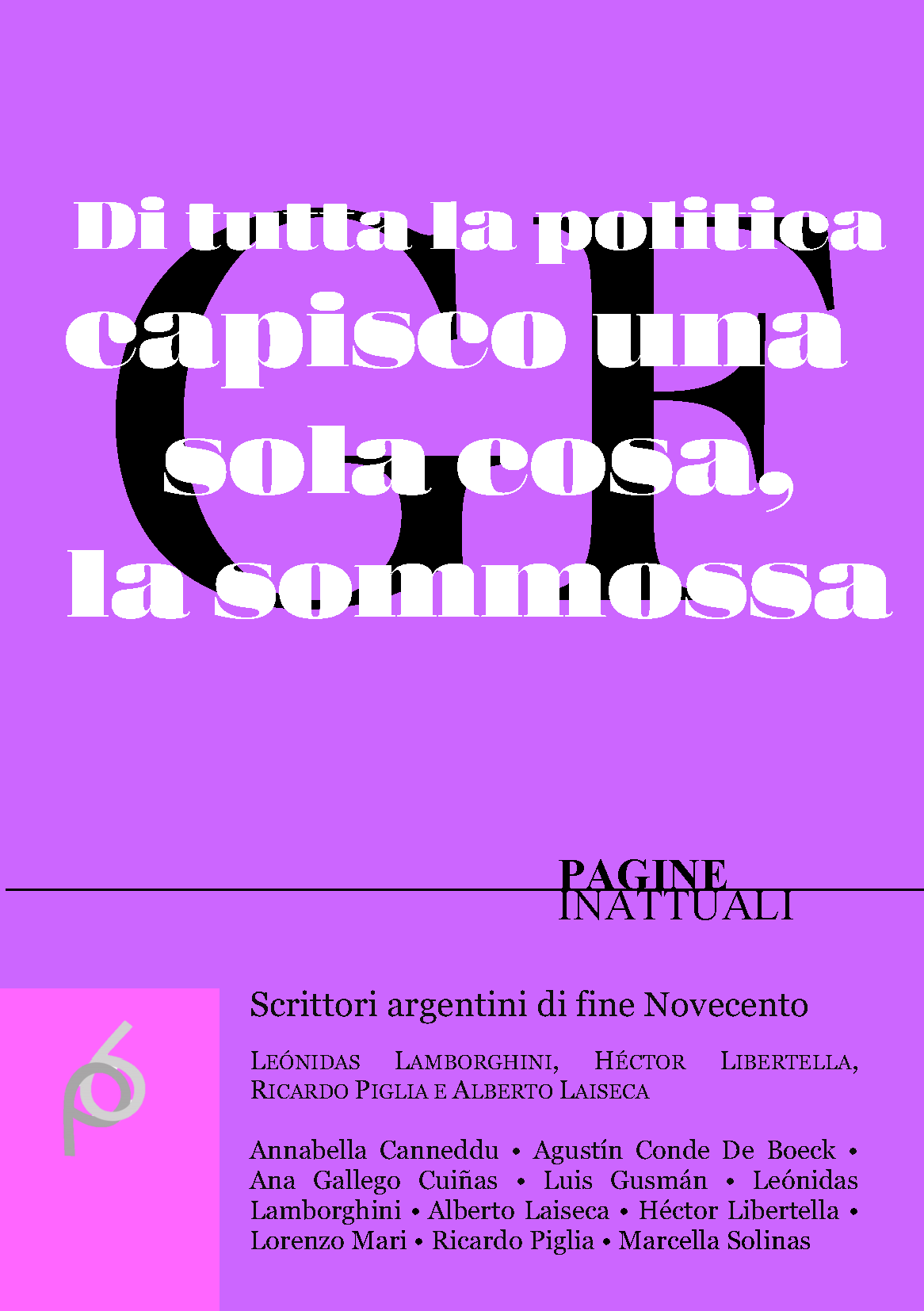Archives
-

The frontier of the possible. Utopia, and dystopia, between additions and dissonances
No. 9 (2022)Utopia is one of the most complex and ancient concepts that humanity has produced. Utopia is used in many and different contexts such as politics, religion, social issues and economic issues, while its intellectual production takes place through literature or scientific essays.
On the other hand, the definition of a theoretical model, beyond its actual realization, assumes the function of a stimulus for the improvement of the contexts in which it develops. For this reason, probably, utopia (and dystopia in the same way) has never suffered from those forms of decadence of interest that constructs of this type often encounter. In this sense, each epoch, it can be said, has its utopian visions, representative of the perspectives and limits of the time that gave birth to them. Reflect about utopia means being able to study a certain social phenomenon from a privileged point of view, halfway between the critique of the present and the planning of a future that is not necessarily near. It means having the possibility of being at a crossroads where critical issues and aspirations for renewal are confronted. It even means affirming thoughts and actions that may not be implemented, thus inoculating that awareness of being bound to a destiny of persistent instability and precariousness.
Against the background of these brief considerations, the new issue of "Pagine Inattuali" tries to offer some research ideas through the interview with Sossio Giametta and the contributions of Alberto Campo, Francesco Muzzioli, Didier Contadini, Tommaso Ariemma, Roberto Evangelista, Gennaro Varriale and Mario Magallón Anaya.
-

Argentine writers of the late twentieth century. Leónidas Lamborghini, Héctor Libertella, Ricardo Piglia and Alberto Laiseca
No. 10 (2023)Between the 1960s and 1970s, one of the most debated issues in Argentine literature concerned how to manage Borges’s cultural legacy and in particular how to relate to the omnipresence of his model. The poetics that emerged then as a generational response to that tension are still an unsurpassed horizon today for what concerns experimentation and originality. In those years, in fact, an entire generation of writers opposed to opportunistically exploiting the great international success of Latin American literature, launched two challenges of no small importance: the first was to the cultural tradition in which they had been trained; the second to the commercial implications of their works, engaging in projects whose declared aim was to avoid any mechanism of “capture” of the market.
Starting from the concept of “mutinous literature”, a concept proposed by Libertella and reworked by one of the protagonists of that generation, Luis Gusmán, in this issue of “Pagine Inattuali” four leading figures of Argentine literature of the late twentieth century will be analysed, complementary figures and, at the same time time, contrasting, namely Ricardo Piglia, Héctor Libertella, Leónidas Lamborghini and Alberto Laiseca. Therefore, after a Gusmán interview, essays by Agustín Conde De Boeck, Lorenzo Mari, Annabella Canneddu, Ana Gallego Cuiñas and Marcella Solinas will follow. The issue will conclude with some extracts from narrative works by authors such as Gusmán, Laiseca, Piglia, Libertella and Lamborghini.

